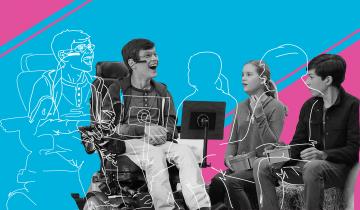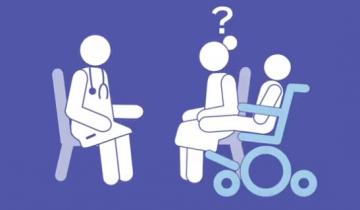In cerebral palsy (CP) muscles are often shortened so much that they restrict joint range of motion and the muscles themselves are weak. Thus, ‘shortness’ and ‘weakness’ are two important needs that clinicians must address.
Dysarthria is a motor speech disorder that affects how clear and understandable a person’s speech is. Between 50-90% of people with CP have dysarthria.

One of the things that was identified through research is that patients with cerebral palsy have higher rates of depression and anxiety than you would see in the general population.

